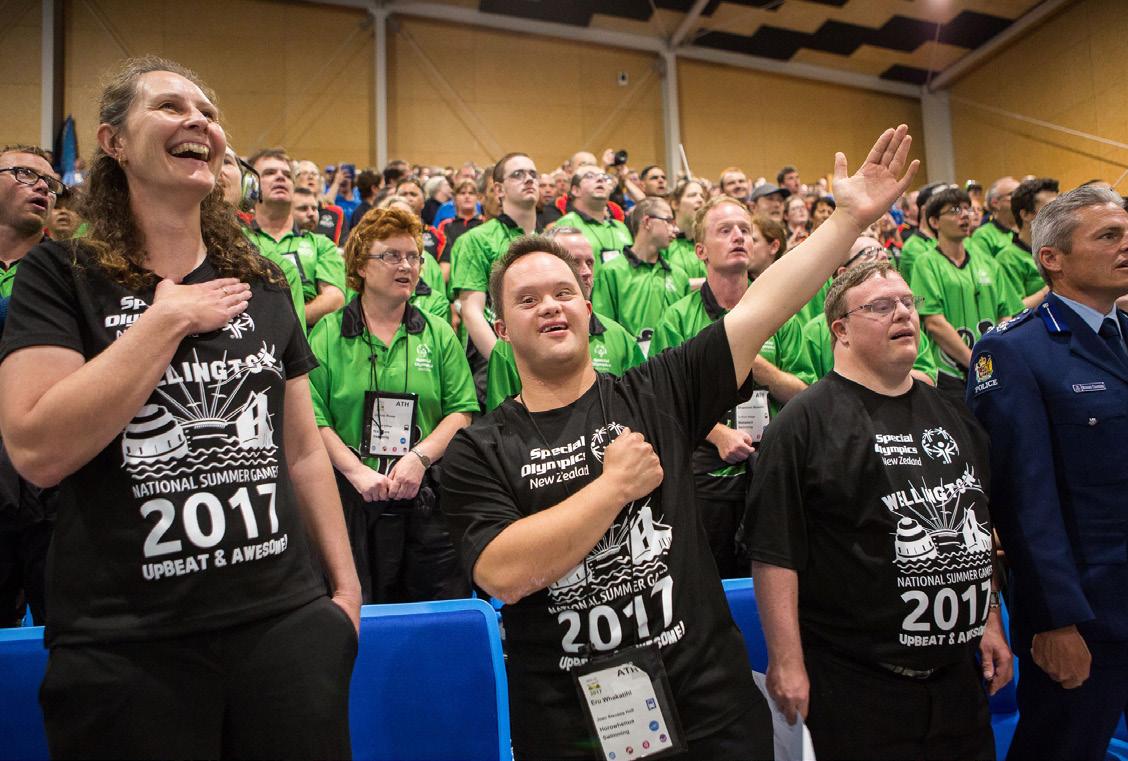
4 minute read
on the NZDSA website
Key webinars still available on the NZDSA website
If you missed out on some of the sessions of the virtual conference, you can still watch some of the key webinars on the NZDSA website. Go to the resources section and you can watch the following seminars in your own time. Just make sure you register as a member, which is free, to get access to all our resources. The webinars that were recorded were:
Relationships – Theories and Practicalities This session deals with a variety of issues that face everyone trying to create new relationships, but may be particularly challenging for someone with Down syndrome. • What are relationships? • Relationships as an adult • Knowing what I want in a relationship • Self-regulation and relationships • Q&A Presenter Dave Hicks: Dave Hicks has been an educator in the field of neurodiverse learners for 20 years. He has worked as a teacher in several specialist settings including schools in Melbourne, Australia; an International School in Jakarta, Indonesia; and schools in Auckland, New Zealand; and currently lectures in and manages programs for young adults with neurodiversity at Unitec, Auckland. He is also a father of a teenager diagnosed as being on the Autistic Spectrum and is passionate about accessible education for all learners, empowerment of learners to make better life choices and social justice and equality for people with diverse needs.
Supported Decision Making – a Human Right Everyone has the right to make decisions, and everyone has the right to access support to make those decisions. This workshop will help participants to gain a greater understanding of the national and international legal context of Supported Decision Making, who may require decision making support, and the key principles and strategies for extending decision making support. It will also explore the concepts of capacity, will and preference, and Safeguarding. Presenter Erika Butters: Erika works as the Director of The Personal Advocacy and Safeguarding Adults Trust. She is passionate that the rights, well-being and interests of all New Zealanders are protected and promoted. Over the last several years her work has focused on ensuring independent advocacy and support for decision making is available to all disabled people in New Zealand. Erika works and lives in Wellington.
Early literacy skills for children with Down syndrome - Families making a difference Learning to read has huge benefits for children with Down syndrome. Not only do they reap the same benefits their peers do, but they also develop vocabulary, grammar, auditory memory skills and clearer speech through learning to read. Fiona will share tips for whānau, based on the latest research, about how whānau can set their child up for literacy success. Presenter: Fiona Kenworthy: Fiona Kenworthy is the clinical director of Small Talk Therapy. Fiona has been practising since 1999. She has worked in child development, the Ministry of Education, special schools, the University of Auckland SLT MSc program and now in private practice. She developed a specialist interest in communication skills in children with Down syndrome in 2010 when she trained in the Johansson Program. Fiona is the most subscribed therapist with the UpsideDowns Education Trust.
The Golden Years: Ageing and Down syndrome An introduction to the needs of the older person with Down syndrome and how this may affect their health and wellbeing alongside the supports they may need. This session offers some background, offers insights and information, and demonstrates best practice when supporting people with Down syndrome. Presenter Geraldine Whatnell: Geraldine (Dina) Whatnell is the Nurse Practitioner Mental Health and Addictions Service, Palmerston North Hospital. Geraldine brings with her nearly forty years of professional skills and knowledge in the specialist area of developmental disabilities (intellectual disabilities and/ or Autism Spectrum Disorder) and mental illness; alongside this, Geraldine has a wealth of personal lived experience – her younger brother Mark having a diagnosis of Down syndrome and now dementia. Individual Education Plan – The capabilities approach Individual Education Plan – The capabilities approach to a structured plan to explain, recognise, and deliver on all learning opportunities to fulfill goals and achievement for children and young people with learning disability and Down syndrome. Presenter: Dr Maree Kirk: Dr Maree Kirk is the Developer and National Director of Supporting Teaching Practice for students with learning disability and Down syndrome (STPDS), a national collaborative programme that has reached over 100 schools in New Zealand, thanks to Lotteries, COGS, TECT, and local community Trusts.
Making visions work - Social skill development for identity across the lifespan Making visions work – There are several influencing factors that contribute to wellbeing for children and young people with learning disability and Down syndrome. When practical strategies to boost social skill development are used by adults from an early age and / or are ongoing at home, school and in the community children and young people increase their sense of belonging, achievement, and positive social disability identity across the lifespan. Presenter: Dr Maree Kirk (see above)








